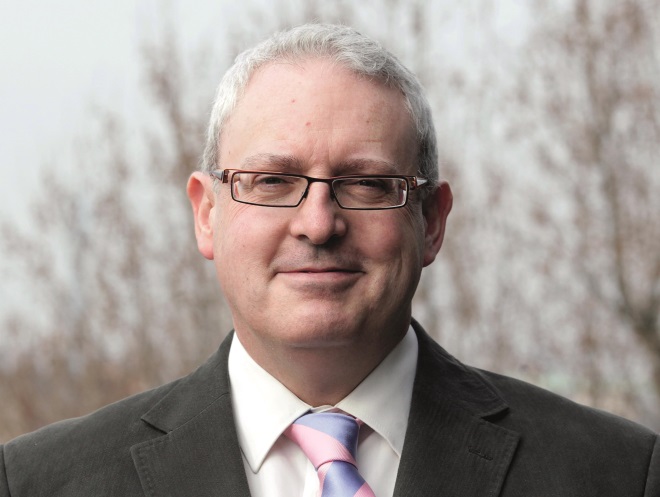
Shutterstock.com
Religious groups representing healthcare professionals have raised concerns over a proposed change to professional standards that requires pharmacists to ensure their beliefs do not compromise patient-centred care.
Christian and Muslim groups say that the “significant” shift suggested by the General Pharmaceutical Council (GPhC), the independent regulator for pharmacy in Great Britain, may jeopardise pharmacists’ identity, autonomy and ability to comfortably exercise professional judgement.
The move, if approved, would trigger a change in the pharmacist–patient relationship and a shift in favour of the needs of the patient.
In future, pharmacists may no longer be able to rely on referring a patient to another provider in cases where they feel their beliefs or personal values prevent them from offering the care the patient requires (see box).
Cases where this could arise are typically the provision of emergency hormonal contraception, routine contraception and fertility medicines.
David Clapham, treasurer of the group Christians in Pharmacy, says: “People of faith are usually people of compassion … even if they cannot agree in all conscience to supply certain medications.”
He says the proposal may make “the position of some excellent professionals untenable” and deter people of faith from entering the profession.
“This would be to the detriment of the profession, patients and pharmacy as a whole,” Clapham says.
Hina Shahid, chair of the Muslim Doctors Association, says the GPhC’s proposal is well-intentioned but raises some important concerns.
“Maintaining a culture of patient-centred care is undoubtedly the cornerstone of providing a safe and effective service to patients. However, we are concerned that certain proposed changes are very restrictive, such as removing the right of referral.
“It is important to recognise that adhering to a high standard of professionalism in the workplace involves respecting the rights of health practitioners and accommodating values and principles that are important to them, religious or otherwise.”
She adds: “The guidance purports that patient-centred care and the autonomy and values of health practitioners are mutually exclusive, which they are not.
“Health practitioners will always strive to ensure patients’ needs are met and thus guidance that implies otherwise is not helpful nor in patients’ or health professionals’ best interests.”

Source: GPhC
Duncan Rudkin, chief executive of the General Pharmaceutical Council, wants to encourage pharmacists to ensure that there are no potential conflicts of interest between their religious beliefs and patient-centred care
GPhC chief executive Duncan Rudkin, however, denies that the regulator is forcing pharmacists to act against their religious beliefs or personal values in the workplace.
“It would be wrong of us to say that in delivering services you must act against your conscience,” he says. “It’s not for us to make a statement like that.”
Rudkin says the standard guidance was designed to support individuals and employers to be “proactive” and to make sure that there are no potential conflicts of interest between an individual’s religion, beliefs or values and patient-centred care. The same responsibility also falls with the employer, he notes.
“The whole point of the guidance is [saying] think ahead so that they do not get themselves into a position where there may be a risk.”
The GPhC’s consultation document concedes: “These proposals will change the expectations placed on pharmacy professionals when their religion, personal values or beliefs might – in certain circumstances – impact on their ability to provide services. They will shift the balance in favour of the needs and rights of the person in their care.
“We also want to highlight that, under the new proposals, a referral to another service provider might not be the right option, or enough, to ensure that person-centred care is not compromised. This is a significant change from the present position and it is vital that we hear from the public and the profession about this.”
The GPhC adds: “In short, pharmacy professionals should not put themselves in a position where refusal to provide services would result in a person not receiving the care or advice they need, or breach human rights or equality legislation.”
The regulator was prompted to propose the changes following a consultation on its revised professional standards that took place in April 2016.
The previous consultation revealed that most people who commented on the section around beliefs and values thought that professionals should not be able to refuse services because of their religion, personal values or beliefs, as this behaviour goes against the principle of providing person-centred care. This view was also backed by patients and customers who responded to the consultation, according to the GPhC.
Joy Wingfield, founder of the Pharmacy Law and Ethics Association and author of the book Pharmacy Ethics and Decision Making, says: “This consultation is an important shift in the balance of conscience between pharmacists or technicians and [the] service user. In short, the onus is now on the health professional to ensure that no service user is denied, hindered or criticised if their needs conflict with the conscience of individuals providing pharmacy services.”
She said the shift is in line with guidance from other health regulators, such as the General Medical Council, and with recent case law.
“Pharmacy professionals who anticipate that a request for a service may not be in line with their own religion, personal values or beliefs must be open to compromise; employers, colleagues and service users must be informed and pharmacy professionals may need to decline to take jobs or roles where such a conflict may arise.”
She adds: “The guidance acknowledges the importance of complying with equalities, employment and NHS contractual law in such situations but stops short of giving legal advice on such issues.”
Any proposed changes to the professional standards are scheduled for introduction in May 2017.
Original wording of proposed GPhC professional standards guidance around personal values and beliefs:
People receive safe and effective care when pharmacy professionals:
- recognise their own values and beliefs but do not impose them on other people.
- tell relevant health professionals, employers or others if their own values or beliefs prevent them from providing care, and refer people to other providers.
New wording of proposed standards guidance:
People receive safe and effective care when pharmacy professionals:
- recognise their own values and beliefs but do not impose them on other people.
- take responsibility for ensuring that person-centred care is not compromised because of personal values and beliefs.


